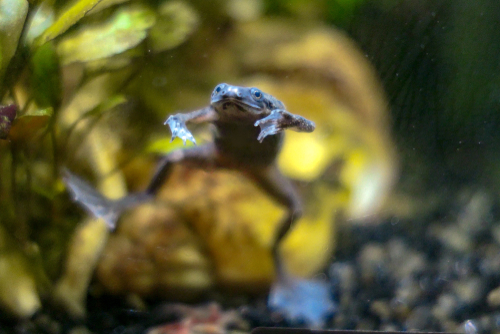African frogs are a diverse group of amphibians found throughout the African continent. These frogs are known for their unique physical features and adaptations, which allow them to thrive in a variety of habitats, from rainforests to deserts.
One important aspect of their survival is their diet, which can vary depending on their species and environment.
In the wild, African frogs are opportunistic feeders, meaning they will eat whatever food is available to them. This can include insects, spiders, worms, small fish, and even other frogs.
Some species, such as the African bullfrog, are known for their voracious appetites and will eat almost anything they can fit in their mouths.
Understanding what African frogs eat can help us better care for them in captivity and protect their natural habitats in the wild.
Contents
Key Takeaways on What Do African Frogs Eat
- African frogs are diverse amphibians found throughout Africa.
- Their diet can vary depending on their species and environment.
- Understanding their feeding habits can help with their care and conservation.
You will also like these other popular posts in this category:
African Frogs: An Overview
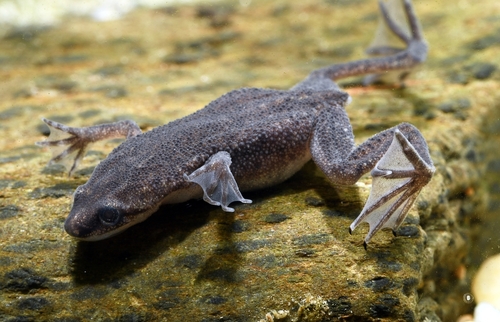
African frogs are a diverse group of amphibians that are found throughout the African continent. This group includes several species, such as the African dwarf frog, African clawed frog, and African bullfrog, all of which belong to the Pipidae family.
One of the defining characteristics of African frogs is their unique anatomy. These frogs lack tongues and teeth, and instead, have a series of bony ridges in their mouths that they use to crush and grind their food.
They also have powerful legs that allow them to jump long distances and swim quickly through water.
African frogs have a relatively long lifespan, with some species living up to 25 years in captivity. However, their lifespan can be significantly shorter in the wild due to predation and other environmental factors.
When it comes to diet, African frogs are primarily carnivorous, feeding on a variety of insects, small fish, and other aquatic creatures. Some species, such as the African clawed frog, are also known to consume plant matter on occasion.
Habitat and Distribution
African frogs are found in a variety of habitats, including rivers, streams, and forests. These frogs require access to water for breeding and survival. In the wild, African frogs are found in equatorial Africa, including Angola, Namibia, and South Africa.
The African dwarf frog, a common species of African frog, is often found in slow-moving or stagnant water, such as ponds or swamps.
These frogs are well adapted to living in water and have a number of unique adaptations that allow them to thrive in aquatic environments. For example, African dwarf frogs have webbed feet that help them swim and move through the water with ease.
Other species of African frogs, such as the African clawed frog, are found in rivers and streams. These frogs are highly adaptable and can survive in a variety of different environments.
They are known for their ability to burrow into the mud during dry periods, allowing them to survive when water is scarce.
Caring for African Pet Frogs
Keeping African dwarf frogs as exotic pets offers a unique window into the world of amphibians. These frogs are usually seen hovering at the front of their tanks, eagerly anticipating their next meal. A balanced diet for these creatures often includes a combination of bloodworms, brine shrimp, and specialized frog pellets.
So, what do African dwarf frogs eat in the wild? Their diet is quite similar to what’s offered in captivity, with a focus on small aquatic invertebrates. It’s essential to avoid overfeeding, sticking to portions they can consume within a few minutes, either once or twice a day. Live blackworms are a particular favorite, stimulating their natural foraging behavior.
The Feeding Habits of African Bullfrogs
African bullfrogs are predators with a voracious appetite, true to their formidable name. In natural habitats, these frogs are opportunistic feeders, lunging at prey as diverse as ducklings, mice, and even smaller frogs.
What do African bullfrogs eat? Their diet primarily consists of any small animal within their grasp, thanks to their powerful jaws and sticky tongues. In captivity, these frogs benefit from the occasional offering of rodents or chicks to mimic their natural hunting behaviors.

However, caution is advised, as these frogs are not picky eaters and may attempt to consume anything meaty.
Ensuring a Chemical-Free Diet for African Clawed Frogs
When planning what to feed African clawed frogs, it’s crucial to consider the source of their food, especially when including insects like crickets or earthworms in their diet.
African clawed frog diet should be free from any chemical contaminants, as frogs can absorb residual pesticides or fertilizers through their permeable skin.
It’s advisable to source food items from organic insect farms or to cultivate your own pesticide-free feeders. Ensuring that the vivarium décor and plants are also chemical-free is essential for the health and longevity of these sensitive amphibians.
Diet in the Wild
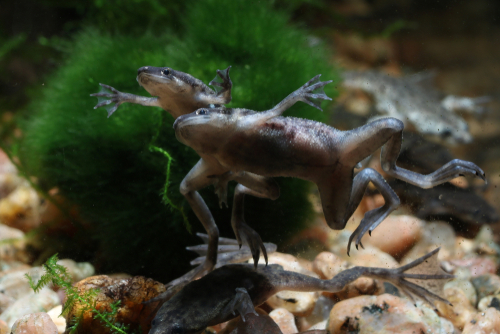
African frogs have a diverse diet that varies depending on their species, size, and habitat. In the wild, they feed on a variety of prey, including small fish, worms, insects, krill, invertebrates, insect larvae, and shrimp species.
Some species are omnivores and consume organic matter, dead animals, and earthworms in addition to prey.
African bullfrogs, for example, are known to be voracious carnivores and will eat almost anything that moves, including other frogs, rodents, and birds. They are also known to scavenge on carrion and consume small invertebrates.
In general, African frogs are opportunistic feeders and will consume whatever prey is available in their environment. They have a keen sense of sight and are able to locate prey by detecting movement and vibrations in the water.
Diet in Captivity
African dwarf frogs are easy to feed and can eat a variety of foods. Owners can offer a mix of live, frozen, and pellet foods to provide a balanced diet.
Live Foods
Live foods such as bloodworms, brine shrimp, blackworms, and tubifex worms are great options for African dwarf frogs. These foods are high in protein and mimic the diet of wild African dwarf frogs.
However, it is important to note that live foods can carry parasites and bacteria, so it is recommended to purchase them from a reputable source.
Frozen Foods
Frozen foods such as bloodworms and brine shrimp are also great options for African dwarf frogs. These foods are convenient and can be easily stored in the freezer.
Frozen food should be thawed before feeding to ensure the frog can digest it properly.
Pellet Foods
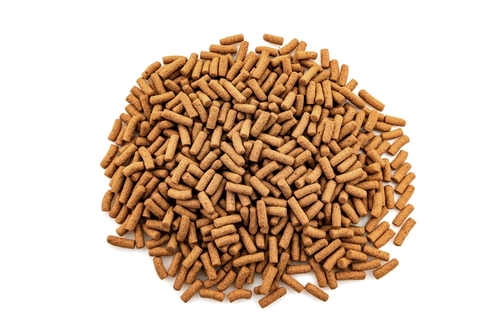
Pellet foods are another option for African dwarf frogs. These foods are convenient and can provide a balanced diet.
It is important to choose a high-quality pellet food that is specifically designed for African dwarf frogs. Owners should also be aware of overfeeding with pellet foods, as excess food can lead to health issues.
Importance of Calcium Supplementation in a Frog’s Diet
Although African dwarf frogs will consume just about anything meaty offered to them, a frog’s diet in captivity may lack sufficient calcium for healthy bone development.
Metabolic bone disease is a common issue if the diet consists solely of frozen or freeze-dried foods. To offset this, a light dusting of calcium powder can be added to their meals a few times a week.
Products like Repashy Calcium Plus or plain calcium carbonate are suitable choices. Vitamin D3 supplements can also aid in calcium absorption, especially for frogs not exposed to natural UV light. By paying attention to these dietary details, one can ensure the frogs have smooth skin, sturdy bones, and active appetites.
Feeding Schedule
African dwarf frogs should be fed once a day, and only as much as they can eat in a few minutes. Owners should also be aware of the amount of food they are feeding and adjust accordingly to prevent overfeeding.
Feeding Habits
African frogs are known to be voracious eaters and have a diverse diet. They are opportunistic feeders and will eat almost anything that fits in their mouths. However, their diet varies depending on the species and their habitat.
Most African frogs are nocturnal, and they hunt for food at night. They have a keen sense of smell, which helps them locate their prey. They are also known to be active during the day, especially during the rainy season when food is abundant.
African frogs are not picky eaters and will consume insects, spiders, worms, snails, and even small fish. Some species also feed on vegetation.
They have a fast metabolism, which means they need to eat frequently to maintain their energy levels.
Overfeeding African frogs can lead to obesity, which can cause health problems. It is essential to feed them the right amount of food to prevent overfeeding.
It is also crucial to ensure that they have access to clean water at all times to prevent dehydration.
Physical Features and Adaptations
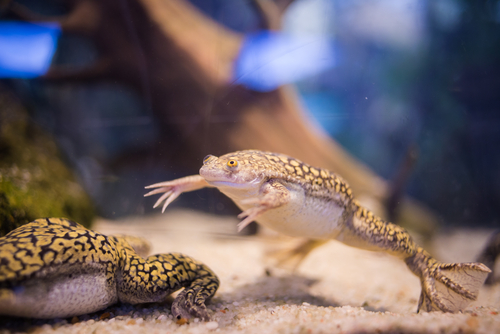
African frogs have a unique set of physical features and adaptations that allow them to thrive in their natural habitats. These adaptations help them to find food, avoid predators, and survive in harsh conditions.
One of the most noticeable physical features of African frogs is their small size. They are typically only a few inches long and have short legs and feet with no claws.
This makes them excellent swimmers, allowing them to move quickly through the water in search of prey.
African frogs also have unique teeth that are used to grasp and crush their food. These teeth are located in the roof of their mouth and are not visible from the outside. They use their tongue to capture prey and then crush it with their teeth.
In addition to their teeth, African frogs have a specialized hyobranchial pump that helps them to swallow their food. This pump allows them to gulp in air and water simultaneously, which helps to move food down their throat.
Many African frogs have a lateral line system, which is a series of sensory organs that run down the length of their body. These organs are used to detect vibrations and movements in the water, allowing the frog to locate prey and avoid predators.
African frogs also have a unique vocal ability, which they use to communicate with other frogs. They produce a variety of sounds, including clicks, whistles, and chirps, which are used to attract mates and establish territory.
Finally, African frogs have developed a variety of camouflage techniques that help them to blend in with their surroundings.
Some species are olive green in color, while others are black or have intricate patterns that help them to avoid detection by predators.
Reproduction and Lifespan
African frogs have a unique reproductive process that involves both internal and external fertilization.
During mating, the male frog will grasp the female in a process called amplexus. The female will then lay her eggs, and the male will fertilize them externally.
The eggs of African frogs are typically laid in water and are surrounded by a protective jelly-like substance.
After a few days, the eggs will hatch, and the tadpoles will emerge. Tadpoles are herbivorous and will feed on algae and other aquatic plants.
As the tadpoles grow, they will undergo a metamorphosis process where they will develop legs and lungs. Once the metamorphosis process is complete, the young frogs will leave the water and begin their life on land.
African frogs can live for several years in the wild, with some species living up to 10 years. However, their lifespan can be significantly shorter in captivity.
Factors such as diet, habitat, and overall care can all affect the lifespan of African frogs.
Health and Care

African frogs are generally hardy and easy to care for. However, providing proper care is essential to ensure their health and well-being. Here are some tips for keeping your African frogs healthy and happy:
1. Aquarium and Tanks
African frogs are aquatic creatures and need an aquarium or tank to live in. The size of the tank should be appropriate for the number of frogs you have.
A 10-gallon tank can accommodate up to three African frogs. The tank should have a secure lid to prevent the frogs from escaping.
2. Water Quality
Maintaining good water quality is crucial for the health of African frogs. The water should be clean and free of toxins. Regular water changes are necessary to keep the water clean.
The water temperature should be between 72-78°F, and the pH should be around 7.0.
3. Substrate
African frogs do not require substrate in their tank. However, if you choose to use substrate, make sure it is fine-grained and does not have sharp edges that can injure the frogs.
4. Tank Mates
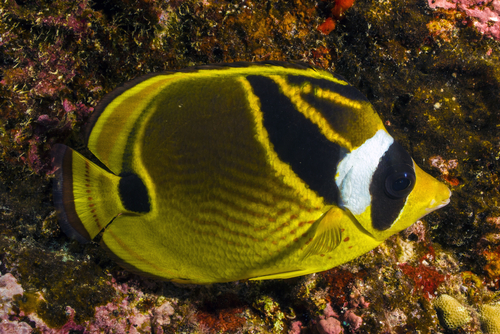
African frogs are social creatures and can be kept with other African frogs. However, they should not be kept with other fish or aquatic animals as they may become prey.
5. Calcium
Calcium is essential for the health of African frogs. Providing a calcium supplement in their diet can help prevent metabolic bone disease.
6. Treats
African frogs enjoy treats such as bloodworms, brine shrimp, and small pieces of fish. However, treats should be given in moderation as overfeeding can lead to obesity and health problems.
Threats and Predators
African frogs face a variety of threats and predators in their natural habitats. Some of the common predators of African frogs include reptiles, birds, and snakes. These predators are known to prey on both juvenile and adult frogs.
Reptiles such as Nile monitors and crocodiles are known to feed on African frogs. These predators are especially dangerous to juvenile frogs that are still developing their swimming and escape skills.
Birds such as herons and storks are also known to prey on African frogs. These birds are particularly adept at catching frogs that are swimming or resting near the water’s edge.
Snakes are another common predator of African frogs. Snakes such as the boomslang and the black mamba are known to feed on frogs, and can be especially dangerous to juvenile frogs.
The African bullfrog, while not a predator of other frogs, can still pose a threat to other animals in its environment. African bullfrogs are known to be aggressive and territorial, and will attack other animals that they perceive as a threat.
Frequently Asked Questions
What are some suitable foods for African dwarf frogs?
African dwarf frogs are carnivores and require a diet that is high in protein. Some suitable foods for them include bloodworms, brine shrimp, daphnia, and small pieces of fish or shrimp.
It is important to provide a variety of foods to ensure that they receive all the necessary nutrients.
Can African dwarf frogs eat vegetables?
African dwarf frogs are not herbivores and do not require vegetables in their diet. However, some owners have reported success in feeding their frogs small pieces of blanched vegetables such as zucchini or spinach.
It is important to note that vegetables should not be the main component of their diet.
What is the best way to feed African dwarf frogs?
African dwarf frogs should be fed in small amounts, as much as they can eat in a few minutes, once or twice a day. It is best to feed them at night when they are most active.
Food should be placed directly in front of them, as they have poor eyesight and may not be able to locate it otherwise.
How often should I feed my African dwarf frog?
African dwarf frogs should be fed once or twice a day, depending on their age and size. Younger frogs may require more frequent feedings, while older frogs may only need to be fed once a day.
It is important not to overfeed them, as this can lead to obesity and health problems.
What are some common mistakes in feeding African dwarf frogs?
One common mistake is overfeeding, which can lead to obesity and health problems. Another mistake is feeding them the wrong types of food, such as dry pellets or flakes, which do not provide the necessary nutrients.
It is important to provide a varied diet that includes live or frozen foods.
What should I avoid feeding my African dwarf frog?
African dwarf frogs should not be fed anything that is too large for them to swallow, as this can lead to choking or other health problems.
They should also not be fed anything that is toxic to them, such as insects that have been exposed to pesticides or chemicals. It is important to research and only feed them foods that are safe and appropriate for their diet.

Ian Sterling, founder of Fishlab.com, began his aquarium journey over 30 years ago, driven by a deep fascination for fish and their diverse personalities. His website, Fishlab.com, is dedicated to making fishkeeping accessible and enjoyable, offering beginner-friendly guidance, expert insights, and a community for aquarists to connect and share experiences.


